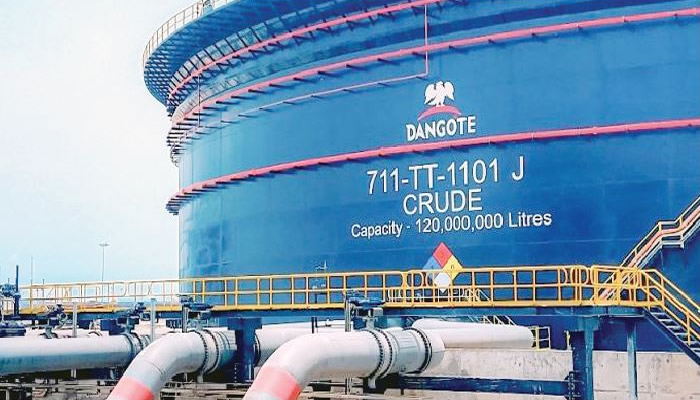Nigeria’s Dangote Refinery has unveiled its first fleet of compressed natural gas (CNG) trucks to bolster nationwide fuel distribution, signaling a transformative shift in the country’s energy sector. The initiative, set to begin operations by August 15, 2025, aims to streamline delivery of premium motor spirit (petrol) and automotive gas oil (diesel) while curbing logistics costs, according to an official statement released Sunday.
The refinery, one of the world’s largest with a 650,000-barrel-per-day capacity, described the project as part of a ₦720 billion (approximately $1.6 billion) investment to modernize Nigeria’s fuel supply chain. Spokesperson Anthony Chijiena emphasized the scheme’s goal of enhancing efficiency and reducing operational hurdles that have long plagued domestic fuel distribution. The first batch of trucks, imported via Lagos’s Apapa Port, arrived at the refinery’s Ibeju-Lekki complex—a hub along the Lekki Corridor, an emerging industrial zone—where they were formally received by Devakumar Edwin, Vice-President of Oil and Gas at Dangote Industries Ltd.
The move follows earlier warnings from the refinery that its entry into fuel logistics would disrupt Nigeria’s downstream oil and gas industry. Analysts view the deployment of CNG-powered trucks as a strategic effort to bypass inefficient transport networks and reduce dependency on costly imported fuels. The refinery, which began production earlier this year, is positioned to play a pivotal role in meeting Nigeria’s domestic energy demands while potentially reshaping regional trade dynamics.
However, the initiative has drawn criticism from industry stakeholders. Petroleum retailers and the Natural Gas Suppliers Association of Nigeria argue that centralized control of distribution could displace smaller operators, risking thousands of jobs across the fuel retail and transportation sectors. While the refinery’s statement highlighted the economic benefits of reduced logistics expenses, detractors caution that consolidation may disproportionately impact local businesses and regional suppliers.
The refinery’s expansion comes amid broader efforts to revive Nigeria’s refining capabilities and reduce chronic fuel shortages. Once fully operational, the CNG fleet is expected to alleviate bottlenecks in last-mile delivery, though debates persist over the balance between operational efficiency and equitable market access. As Africa’s largest economy navigates these reforms, the project underscores both the potential and complexities of modernizing energy infrastructure in emerging markets.
